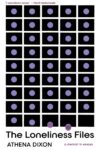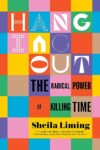This essay was first made available last month, exclusively for our Patreon supporters. If you want to support Full Stop’s original literary criticism, please consider becoming a Patreon supporter.
Today, it is all too easy to imagine Alfred Chester (1928–1971), the once-infamous and long-forgotten literary critic, fashioned into a kind of darker, zombie version of Fran Lebowitz. The caustic Chester, one of the best kept secrets in the infrequently thumbed annals of literary criticism, is just one podcast episode or a Netflix documentary away from the type of resurrection—or, cannibalisation—that fewer and fewer people, dead or alive, are safe from.
Legends and laypeople, cricket players and casino clerks, pop musicians and local politicians, murderers and murder victims. The culture industry’s countless body snatchers and all too eager Burkes and Hares are always on the lookout for the next exquisite corpse. Legions of documentarists, journalists, essayists, scriptwriters, and actor-producers work round-the-clock to unearth another gripping “life story.” It doesn’t really matter whose story it is. No one can truly count on not ending up a montage of old photos, accompanied by piano music, a Hollywood voiceover, or a share button.
If the subject’s actual work is to be noted or analysed in these types of products, it is usually tightly contextualised; reduced into a milepost in a personal chronology, strictly in parallel with whatever goings-on were taking place in said person’s life at the time. Or wrapped—in Alfred Chester’s terms —in Franzblauthink, a sort of ham-fisted psychology named after a made-up Agony Aunt, Dr. Franzblau.
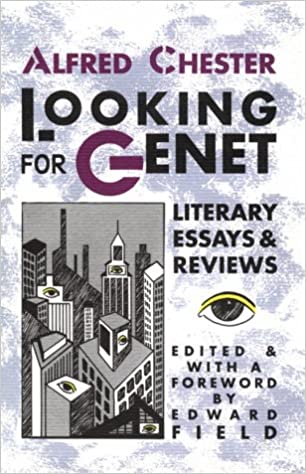
Published in 1992 and long out of print, Looking for Genet, the definitive collection of Alfred Chester’s book reviews and essays, can be read as a life story. The book does provide plenty of material for this sort of reading. It includes a handful of autobiographical columns and a long personal essay, “Letter from the Wandering Jew.” The essay details Chester’s orthodox upbringing and school days in a yeshiva in New York, his trauma of muddled identity, plus the erratic attempts in his adult life to settle in the US, France, Morocco, and, lastly, Israel. Written just before Chester’s untimely, unfortunate end in Jerusalem, it has a tone that resonates obviously with what is known of his last days (in short, drugs and loneliness and paranoid schizophrenia), and ends, all too poignantly, with a sort of self-elegy:
A few wild poppies are blooming in my littered weedy garden. When I walk out with the dogs I see the poppies opening here and there among the weeds, and here and there a few sickly wilting narcissi. Surely death is no dream, or hopefully not, and that being the case, there is then in truth a homeland, a nowhere, a notime, noiseless and peaceful, the ultimate utopia, the eternal freedom, the end to all hunting for goodness and home.
Chester’s story is further outlined in the foreword by the poet Edward Field. He provides a testimony, not only to Chester’s genius, but also to his madness.
For the few biographers of Alfred Chester, anecdotes—usually from people like Field and Cynthia Ozick, who knew him and would later far outshine him in terms of literary fame— have always played a big role in their evaluation of him. Chester’s life proved to be a rich source of these.
His alopecia universalis, accentuated by the bright orange wig he clung to for most of his life (before accidentally burning it on a stove and wearing the remains for a while), gets inevitably mentioned in everything written about him, including this piece. Cynthia Ozick’s essay on Chester, published in the New Yorker in 1992 amidst the brief Field-led surge of minor interest in his legacy, was titled “Alfred Chester’s Wig.” The wig is usually served as a key to understanding Chester, his personality, and therefore his work. Dr. Franzblau couldn’t have done a better job.
There are the other classics, too, the pieces of trivia invariably trotted out: the Greatest Hits of a small cult act. His absurd wars with landlords, filled with Chester’s Machiavellian tactics of evading rent. The imaginary wife he conjured up to extract money from his relatives in the form of wedding gifts (“Are imaginary divorces expensive?” he later mused in a letter to a friend). His countless slights, barbs, insults, delivered in person and in writing.
A 2008 VICE article on him bears the title “Beloved Monster.” His criticism, his life’s work, is too often made inseparable from his character. More often than not, it becomes an extension and an expression of it. This does a disservice to him as a critic. It is also misleading, since Chester tended to withhold autobiographical elements in his criticism, even when the opportunity (if not the obligation) arose, such as when reviewing books dealing with the topic of homosexuality.
Despite publishing two novels and two short story collections in his lifetime, Alfred Chester was and has always been noted for his criticism. He kickstarted his career with a put-down of John Updike on Commentary that soon became the talk of the American literary scene. This was followed by a string of reviews and essays, often highly acerbic, on such names as Vladimir Nabokov, J.D. Salinger, and Edward Albee.
It can be said that a certain narrative arc is visible in Chester’s book reviews and literary essays, written mainly between 1962 and 1964, if only because of the chronological order they are presented in in the 1992 collection Looking for Genet.
There is a story, indeed, in Looking for Genet. It is one of rise and fall, of crash and burn-out, of hubris and hamartia; not wholly unlike the ones social media influencers, CEOs, and pop stars are more than inclined to churn out in some point of their careers nowadays, but differing from them in its ending. Chester did not come out of it all a stronger, better version of himself. The story of Alfred Chester is a tragic one. It is a victim’s story.
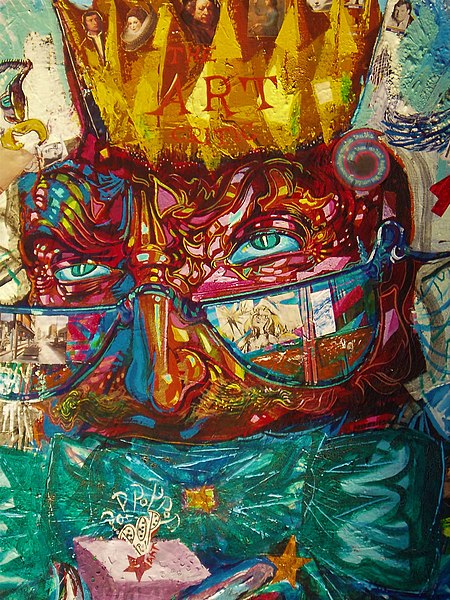
In hindsight, Chester, whose reputation as a writer sky-rocketed and then waned in less than two years, was a victim of many things. First and foremost, untreated mental illness. Second, as a gay man, his times—the laws, attitudes, mores, and simmering tensions of the pre-Stonewall era. Third, Chester was a victim of the spectacle, a still-ongoing period in history, which was taking shape around the time he gained fame as a writer; as Ian Penman put it in his London Review of Books essay on the Beatles, “a moment when discrete segments of society were slowly coalescing into an entity called the Media. A living collage in which all … names were raised (or reduced?) to the same relative value.” The Beatles heralded a world we are now all too familiar with, where a lawyer stuck with a kitten-filter on Zoom can rub shoulders with Donald Trump, boxer Logan Paul, and whichever mass killer has gone postal that week and posted a manifesto online.
Alfred Chester found himself in the world of Jackie Kennedy and Gore Vidal, of Andy Warhol and Gloria Vanderbilt. He hung out with Paul Bowles and Princess Marguerite Caetani and corresponded with James Baldwin and Carson McCullers. He was propelled, perhaps too quickly, into the same echelons as the likes of Norman Mailer, Mary McCarthy, Truman Capote—the people whose works he wrote about. Rising from obscurity to the “red-hot center” of the American literary scene (according to the Esquire magazine’s cocksure ranking of writers in a 1963 issue) in merely a year, and then fading back into obscurity almost as quickly, Alfred Chester was a victim of fame, the most valuable currency of this society of the spectacle.
The results of this succumbing to public image, to the maddening idea that he truly was everywhere, as big (or small) as all of the other names, are all too visible in the way certain elements started to creep up in the texts Chester produced for America’s top literary magazines. As his readership grew, Chester became more and more fixated on “the scene,” its real and imagined responses and reactions to his work. He became increasingly paranoid—vocally aware, even needy, of his audience:
Ladies and Gentlemen, my dear and gentle readers — I understand there are over a million of you — I welcome you to the crawling underside of the literary gossip column … Over a million of you! What power I have! … Will you all write nasty letters to the editors who have made me so insecure? (Book Week, January 26, 1964)
It is clear he internalised some of the criticism he endured, however justified or unjustified. In a later column, he examines his own “ignorance,” in a self-deprecatingly humoristic, yet telling manner:
Perhaps, as T.S. Eliot said of Henry James, I have a mind so pure no idea can violate it. (Out of what newspaper could I have salvaged that misquotation?) My mind is a Sargasso sea over which spans the great busy bridge of Western Civilization. Unhappy, lonely, unloved, rejected ideas, their tired feet embedded in blocks of concrete or their weary necks hung with anchors, sometimes drag themselves to the parapet and hurl themselves off the bridge to end it all, to sink and drown in the warm muddy waters of my brain. Occasionally the corpses break from their blocks or their irons and drift around (like the Eliot quote above) probably in a state of decomposition. I never bother about them until I’m at work writing one of my unutterably ignorant bits of lit’ry criticism. Then I drop all my nets and haul up whatever carrion is swimming loose — an arm here, an eye there. I patch them up with band-aids and use them, with all that force, energy and conviction with which the very stupid are so often blessed to substantiate my arguments. (Book Week, February 23, 1964)
In his correspondence with Field, he expressed his anxiety, self-doubt, and paranoia more directly: “Edward, am I going mad or is it possible that people do actually write nasty things about me in newspapers?”
Some people did, in fact, take potshots at him. It was hardly surprising, with someone as confrontational as Chester. Surely, it is something that has always gone with the territory of being a critic.
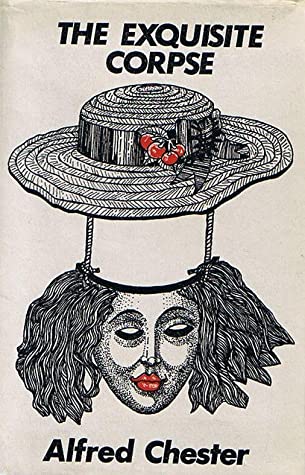
Chester had always considered himself first and foremost a writer of fiction, and at the time, he was already working on his upcoming novel, the Exquisite Corpse, a dizzingly postmodernist mix of personae and voices. The book started to take up most of his time, just as his previous, unfinished manuscript, I, etc. had once done.
This story of losing one’s self artistically, professionally, and personally is evident in Looking for Genet. After a while, Chester more or less stopped writing literary criticism and took up producing hurried autobiographical columns for Book Week. He was now someone with a name, and he was permitted to write anything. And he set out to do just that. He started to write more and more about his life. He produced content about his boyfriend, and his fungal infection. He described at length the tediousness of getting photographed for Time magazine. He was not a mere book critic anymore. He had become Alfred Chester, a writer, another piece on the kaleidoscopic living collage of the Media.
Ultimately, Alfred Chester was a victim of the most common, the most banal source of hardships there is: money. Despite being a valuable currency, fame cannot always be converted to real cash. While trying to meet the time limits of all the writing jobs he had taken up, he made no attempts to mask the stress under which he was producing these rather uninspired pieces. His writing, personal and professional, became progressively laden with references to his financial situation and impeding deadlines.
Amidst all this turmoil, one theme became a burning, all-consuming question; a question which, in the end, drove him literally mad: Who is Alfred Chester?
Like Edward Field has noted, it was when Chester turned to criticism that publishers started to take notice of him. Before that, he had published a novel, and some of his short stories had been included in anthologies, but they had failed to make any impact. His criticism quickly brought him all the fame, fortune, and work opportunities that had previously evaded him.
In short: a star was born. Without further elaboration on just why Chester became so pursued as a critic, this narrative does not do justice to Chester’s work.
The truth is, the writer that emerged on the pages of Commentary and Partisan Review was not the writer of the pages of Jamie Is My Heart’s Desire (1956), or even The Exquisite Corpse (1967). Chester’s fiction remains largely forgotten because it is rather derivative and inconsistent, and his criticism lives on because, in Field’s words, it was there that “we hear a single authoritative voice.” His novels or short stories never provided anything Genet, Burroughs, Capote, Vidal, etc. had not provided to the readers before, while his writings on other writers did provide something thoroughly new and exciting. Chester’s own voice, his own style, is crystallised in these pieces full of astute, vivid, and highly entertaining prose.
It is, indeed, interesting to read Chester’s own assessment of his literary criticism:
All I ever do in it is try to show the writers up. I am campier than Rechy, beater than Burroughs, more brainy than Nabokov, more zen than Salinger, etc., etc. All you have to do is turn the dial and I’m it. … Is there any hope of ever being Alfred?
This is not the first time an author’s perception of their own oeuvre has been blurred by personal insecurity. Alfred Chester’s ear for different literary discourses and styles—and therefore, as Gore Vidal noted, his “ear for the false note”—was exactly what made him such a perceptive and persuasive critic. This skill gives his work the immense power it still holds: the power to absolutely change the way you see a novel, no matter how praised and prized—by you, your peers, or the industry and its legacy-making machines.
Despite all his literary techniques and his tendency to wax philosophical, Chester’s focus is strictly on the books he is reviewing. Straight autobiography is not common in his criticism; no anecdotes or any such essayisms about a deep discussion with a friend back in college, burying a pet, a comment made by a deliveryman, etc. There is, undeniably, an “I” in Alfred Chester’s criticism. But it is never preceded by something mawkish and self-indulgent like: “Growing up in Flatbush, New York…” Or: “In the old, sepia-toned photograph, taken when…”
When, in his review of Naked Lunch, Chester declares himself to be an “immoralist,” he does so in his wonderfully prosaic way:
In a pinch, I would give up everything, because I value nothing, except my skin. And there is no glorious justification to call to my aid, not even Nature who could surely not value anything with which She is as prodigal as skin. … So, without her, I have no rationalizations: I just don’t want to give up my skin. It feels so good, especially in the sun or in the woods or in the sea or against another.
Of course, it is not this skin-talk that elevates Chester’s critical assessment of William Burroughs’ infamous novel into high criticism. What does is his allergy to “literary legends” and myths, like the ones about Burroughs that were already being peddled by the publishing industry and the press and cemented by sheer repetition—his being “possessed by genius,” as Mailer put it, and the hazy origins of Naked Lunch. What makes Chester’s reviews so insightful is his ability to see through the hype and place works of art into a larger, socio-economic context.
Today, with the reputation of authors’ whole bibliographies resting on past infamy, it can be hard to forget that some now-canonised works were not always regarded so highly. It can be even more difficult to remember that some modern classics that were once hounded by censors were also riding a concurrent wave of enthusiastic response, the first rush of today’s lapping praise.
Unlike other critics of the time, Chester saw exactly what corner Grove Press, Burroughs’ publisher in the States, was working. Chester saw that underneath all the culture war brouhaha there, as everywhere, was a target market for Naked Lunch. Namely, the bearded Lower East Side; college kids into “jazz, marijuana … Zen, and Mexico.” When almost everyone else, conservative and liberal alike, was too busy having the same discussion of moral and immoral books in one form or another, transgression this and obscenity that, Chester concentrated on what matters: whether a book was well written, or badly written. And despite seeing that Burroughs could sometimes be “brilliant,” Chester was not convinced that Naked Lunch was the former:
In his tireless and tiresomely intellectual use of obscenities and in his shrieks of outrage, [Burroughs] is like an adolescent Henry Miller. In his savage political parodies, he is like a naive George Orwell. In his brutal sexual fantasies, he is like a timid Marquis de Sade. In his overpowering belief that the mention of petroleum jelly, baboon’s behinds, and contraceptives will infallibly provoke laughter, no matter how many hundreds of times repeated, he is like a senile Joey Hirsch, the boy next door to me when I was ten.
In an age when some literary legends seem so sturdily erected and protected to prove almost untopplable, fortified by ceaseless platitudes, it is refreshing to witness their evaluation by contemporaries, especially someone as astute as Chester. His assessments speak also to the modern reader, in virtue of their focus on issues that were and still are overlooked and under-researched—not just the missteps of authors, but also the strokes of brilliance. Chester draws parallels between Naked Lunch and Lewis Carroll’s Alice in Wonderland, and sees the beauty in the fact that a novel trying to “pull the washplug out of the universe” is so indebted to “the most loved story of the English language.”
With J.D. Salinger, who was already heavily pilloried in the literary press, Chester was, in a way, more respectful than the other critics, such as Mary McCarthy and Alfred Kazin, by way of thorough inspection of what Salinger’s later stories about the Glass family were truly about— basically, the author’s own religious confusion, a struggle which Salinger’s daughter Margaret later confirmed in her memoir. While other critics seemed to concentrate on being annoyed with the “self-satisfied” Glasses and their spiritual leanings, Chester saw no point in getting so heated about characters that were, he rightly assumed, simply a representation of the spiritual and artistic limbo Salinger had reached. Riffing on the Zen idea of both enlightenment and unenlightenment being a state where “mountains are mountains and rivers are rivers,” Chester points out how the strength of Salinger’s early, pre-Zen writing lay in nail polish and Cadillacs being nail polish and Cadillacs. By the time the stories “Franny” and “Zooey” came out, nail polish had stopped being mere nail polish to Salinger. The more Salinger wrote about the Glasses, the more and longer words he and the Glasses used to explain themselves, the less attainable were the strengths of his earlier writing, as was satori. While others blamed Salinger of being too much “in love” with the Glasses, Chester saw the despair and frustration of his writing; the “wheels of his spirit spinning in the sand where they got caught.”
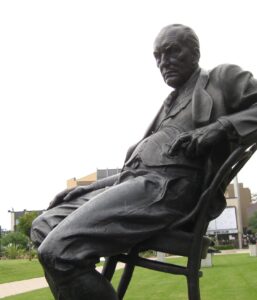
Reviewing Vladimir Nabokov’s Pale Fire, Chester praises Nabokov, before ending with what constitutes as a rare example of the “I” as an autobiographical authority in Chester’s criticism:
Despite all this brilliance, Pale Fire is a total wreck, and for only one reason: it isn’t funny, and it’s supposed to be. … To Nabokov, a thing is a riot by virtue of being itself, with the sous-entendu that he hates it. If you find, as he does and I don’t, that it is a scream to write a literary commentary, to be a homosexual, to be insane, to be paranoid … — and all these things in themselves — then you will roar the sickly laughter of Nabokov. It takes a lot more to make me laugh, and I think I am not in this respect much different from most people. Nabokov’s mockery offends me not because I’m an American liberal and can’t stand people making fun of other people, but because he is making fun of other people and revealing no truth, except about himself.
The self-styled immoralist becomes a moral authority. Despite not saying anything about his own sexuality, Chester establishes a clearly personal, emotional basis for his judgement of Nabokov’s book. But it is very rarely that Nabokov’s oft-praised sense of humour is actually, really, thought about. What is the source and target of his comedy in Pale Fire? What purpose does it serve? Are homophobic stereotypes any less problematic than “racial prejudice,” to which Chester likens Nabokov’s dark laughter? And like so many books that, we are always being told, are “riotous,” “hilarious,” or even “hysterical,” yet don’t really make us emit any audible signs of mirth, is Pale Fire actually that funny?
It is hardly surprising that, with Pale Fire, Alfred Chester’s disappointment stems from his failure to find any revelations in Nabokov’s mockery. Chester himself was a master of this kind of humour.
No wonder Gore Vidal once went as far as to compare Chester’s writing to black arts. As everyone knows, there can be something terribly captivating about a well-executed putdown. Rave reviews rarely generate shares, likes, and discussion as efficiently as negative takes. The statue of Princess Diana, unveiled last year, really took off as an international topic of debate because of the sharp criticism it received from the art community.
Politics is no different, and no one has defined the barb-wired discourse of today’s politics more than Donald Trump, or been more successful in that arena. The classicist Victor Davis Hanson, author of the 2019 book The Case For Trump, has argued that the 45th president of the United States demonstrated “an uncanny ability” to pick his targets, that there were “elements in all those people’s careers that were starting to bother people, and Trump sensed that out.”
However crude Trump’s actual style was, his approach bore resemblance to the drag culture tradition of “reading” someone, to the comedy of “roasting,” or, in essence, to the behaviour of generations and generations of schoolkids. As is well-known in a lot of playgrounds, this approach can yield problematic results. There is a line between bullying and telling the truth, and Trump, like many other bullies, crossed the line merrily, relishing the age-old belief that truth hurts. But bullies always operate in bad faith. They take that belief, and twist and turn it—to modify a theory coined by YouTuber Natalie Wynn—into a sort of sadistic epistemology: whatever hurts is true.
After a while, Alfred Chester might have become too conscious of his image as a ruthless critic. Vidal described his criticism as “often plainly gratuitously destructive.” Even with books he seemed to have genuinely liked, like Mary McCarthy’s The Group, he was hard-pressed to admit his appreciation:
I can spot its weakness, as I can spot its strength, but they don’t add up to good or bad. They just add up to McCarthy, to that voice which you can either take or leave, depending how much it charms you.
It is no minority opinion that Chester often veered dangerously close to bullying. This was never more the case than with John Rechy’s 1963 debut novel City of Night, which tells the story of a male hustler. Under the clearly homophobic title “Fruit Salad” (which was not coined by Chester, though), Chester laid into Rechy’s novel with such malice that Rechy, a bestselling novelist, has even decades later objected to the reprinting of the review in anthologies.
The review did undoubtedly harm Rechy. To be sure, Chester was, as a critic for a magazine as big as The New York Review of Books, in a position of power that might have required more restraint. But that does not take away from the accuracy of Chester’s observations. Perhaps it took a gay man to point out the jarring conflict inherent in Rechy’s ground-breaking novel: for a book so seemingly candid and open about homosexual life in America, its narrator’s take on the issue seems quite inhibited. In Chester’s words, the protagonist’s lack of “real, living response” to the people and things described in the novel is “a terrified refusal by the hero—or if I may say so, by the author— to respond honestly and immediately lest the response be construed (if only by himself) as an involvement.” Chester carefully pinpoints the problem of the novel, which is that, in lieu of actual skin in the game, so to speak, the narrator gives a jumbled cocktail of learned literary discourses, substituting “literature for emotions,” which ultimately makes for a really tiring and unsatisfying read. In the end, despite hundreds and hundreds of pages of things, the aloof main character remains an enigma, a no-man. And oddly puritanical, too, for a male prostitute. His virtue, Chester writes, “is intact because he never loved no one but Mama, and his masculinity is whole because it was never punctured except for money.” So, in a twist of unintended irony, as Chester puts it, “lovelessness and prostitution” somehow end up making a case for “middleclass morality.”
In a later letter to the editor, John Rechy portrayed Chester’s review as petty and sexually frustrated, and his motives as “dishonorable.” It seems more apt to view Chester’s disdain in the light of the fact that some of his own stories, very much concerning the same topics as Rechy’s novel but pulling no punches, had been rejected by literary magazines because they were deemed “too celebratory.” Chester, always quick to call out the industry’s hypocrisy and pretensions, was probably displeased to see a book like City of Night then lauded as seminal.
In a Wildean manner, Chester once declared that the only function of a critic was to entertain, and the function of entertainers was to criticise. Chester’s criticism often goes back to this desire, as a reader, to be entertained, as well as his aspiration, as a critic, to entertain. Above all, he wants to “feel”:
[S]ince the meaning of a work of art comes through the blood and nerves of the artist, we can’t know the meaning except through our own blood and nerves, through our own feelings. Mind comes lagging along afterward with thick lenses on, correcting themes, organizing logic, justifying diction and contradiction, and so on. … Melville’s passion is not to be known by attributing an abstraction to Moby Dick. Kafka’s anguish is not to be felt by substituting another word for castle.
In this, Chester joins a long, long tradition of writers arguing against overt intellectualism, too far removed, in their eyes, at least, from actual human experience. He also ends up taking a stance similar to that of friend Susan Sontag, who, a couple of years later in her collection Against Interpretation (1966), argued for sensitivity, a more primitive and “magical” experience of art.
Alfred Chester met Susan Sontag when she became his roommate in New York in the late 1950s. He later helped her land a job as a critic for Partisan Review. The rest, for Sontag, is literary history. Sontag would become a world-famous essayist and critic in her own right (and the writer of a collection titled, interestingly enough, I, etcetera).
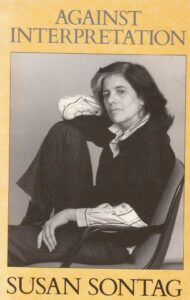
The friendship, like most friendships in Chester’s life, soon turned sour. Chester was disdainful of what he saw as Sontag’s careerism. Sontag was taken very quickly under the wing of Roger Straus, co-founder and chairman of Farrar, Straus and Giroux, and came to enjoy privileges new writers are rarely granted. The publisher took it upon himself to market Sontag, keeping in print and securing translations for basically everything she wrote. The two were often seen in parties, side by side, sometimes dressed in matching outfits.
In a 1964 essay about Norman Mailer, Alfred Chester wrote: “America has begun flirting with her intellectuals, and the intellectuals have begun flirting back.” Susan Sontag was one of the many essayists, cultural critics, philosophers, and commentators spearheading a full-on love affair between mass media and intellectuals in the latter half of the 20th century. This affair has now bore as its fruit a very modern type of fandom, as well as the curious, simultaneous reduction (or rise?) in the value of these thinkers. Sontag, reduced into a youthful black and white photo—just like Joan Didion, for example—is more often encountered on t-shirts and tote bags, on inspirational quotes and Instagram posts, rather than on bookshelves. Never has Chester’s observation of intelligence as a “popular commodity” rung truer. The modern intellectual does not need to be read anymore, only cheered on. Their intelligence established, they can be mounted like butterflies. In the accessibility and abundance, the rush and race of our internet-led culture, intellectuals, too, become parasocial tokens of cultural capital, targets of blind fan admiration, visual signifiers of taste. Writers, like anyone else, join the walls of the perpetual-childhood room of popified culture, covered with posters of Bowie, the Obamas, Jobs, RBG, what have you.
What about them? They all lived a life. And our contemporary culture loves lives, all lives, as long as they constitute a marketable story. In 2014, out came Regarding Susan Sontag, a documentary film about hers. The blurb describes the movie thusly: “An intimate investigation into the life of Susan Sontag, one of the most influential and provocative thinkers of the 20th century.” The film, apparently, “explores her life through experimental images, archival materials, accounts from friends, family, colleagues and lovers, as well as her own words, read by actress Patricia Clarkson.”
50 years after his death, it could be posited that Chester, unlike his old friend, did find his nowhere, noiseless and peaceful. But it might not prove to be as eternal a sanctuary as he wished. It’s only for so long a hidden cultural treasure can stay hidden. Then it won’t be up to Alfred Chester to figure out who, in fact, Alfred Chester is. But the answer to that question, which is already there, won’t drive anyone mad, since it is obvious: he is a story. And that story will be succeeded by another one, about someone else.
Before that, and after that, we still have Chester’s criticism. His takes on different books. His life’s work—or, in short, his life. In Oscar Wilde’s terms, a chronicle of his own impressions, the record of his soul, the “only civilized form of autobiography” we can have of him.
Arsi Alenius is a Finnish-born writer, living in the United Kingdom. His debut novel, Villa Alpha, published in Finland in 2019, was nominated for the Helsingin Sanomat Literature Prize. He keeps a blog of literary essays and reviews, called Opus Vei.
This post may contain affiliate links.





